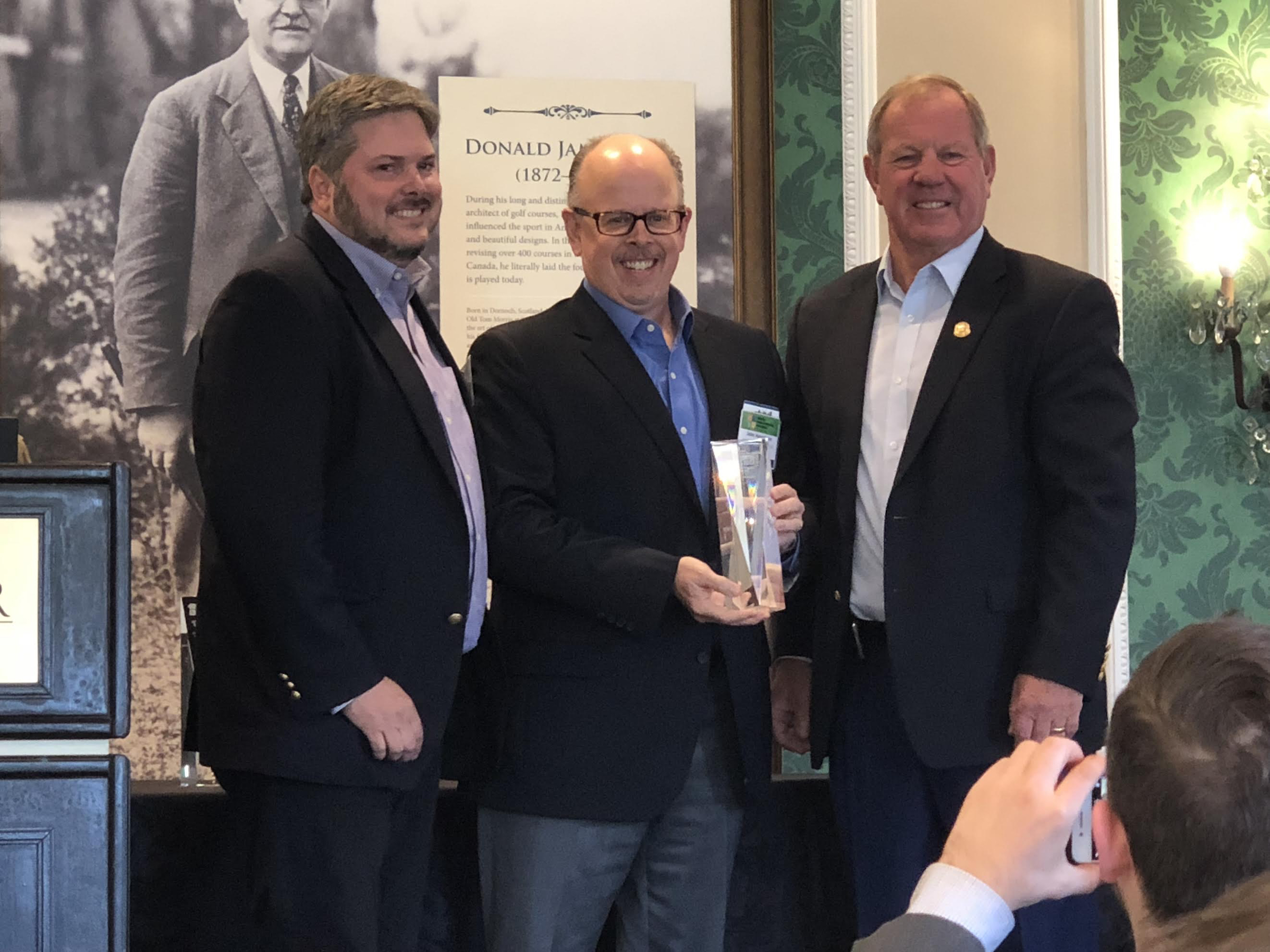Left to right: Kevin Chase, chief investment officer, Vanguard Renewables; John Hanselman, chairman and CEO, Vanguard Renewables; and Ben Harvey, E.L. Harvey and Sons, chair, NWRA Board of Trustees. (Courtesy photograph.)
A recycling company working with Haverhill to convert food and farm waste into energy formally opens its doors this week with a ceremony involving state officials.
Vanguard Renewables of Wellesley, which built an anaerobic digester to create energy from decaying wastes at Crescent Farm, is holding a tour of the facility Friday, Nov. 2, beginning at 11 a.m., at Crescent Farms, 1058 Boston Road. There will also be several speakers, including Vanguard Chairman and CEO John Hanselman, Massachusetts Department of Energy Resources Commissioner Judith Judson and Massachusetts Clean Energy Center CEO Stephen Pike of Haverhill. The Massachusetts Clean Energy Center granted Vanguard $500,000 during May 2017, to help fund the project.
The digester takes the energy created from the waste and has it fuel a generator at Crescent Farm, producing roughly one megawatt of energy for the farm. This particular digester also accepts waste from Cedar’s Mediterranean Foods, Cabot Creamery and Whole Foods. The project has been under construction since mid-2017.
Vanguard has also been recognized by the National Waste and Recycling Association with the 2018 Organics Recycler of the Year award. The association has granted Vanguard the award due to the contributions they have made to protect the environment and advance the waste and recycling industry.
Hanselman said, “The entire Vanguard team is extremely proud to receive this award. Our Farm Powered organics recycling and farm-based anaerobic digester program is the first to vertically integrate the organics feedstock chain and farms to solve food waste challenges, generate renewable energy, and sustain farms.”
Vanguard’s facilities extend across six states and process nearly 200,000 tons of waste per year. By the end of the year, they are expecting to process 500 tons of food waste and 120 tons of manure daily in Massachusetts alone.
